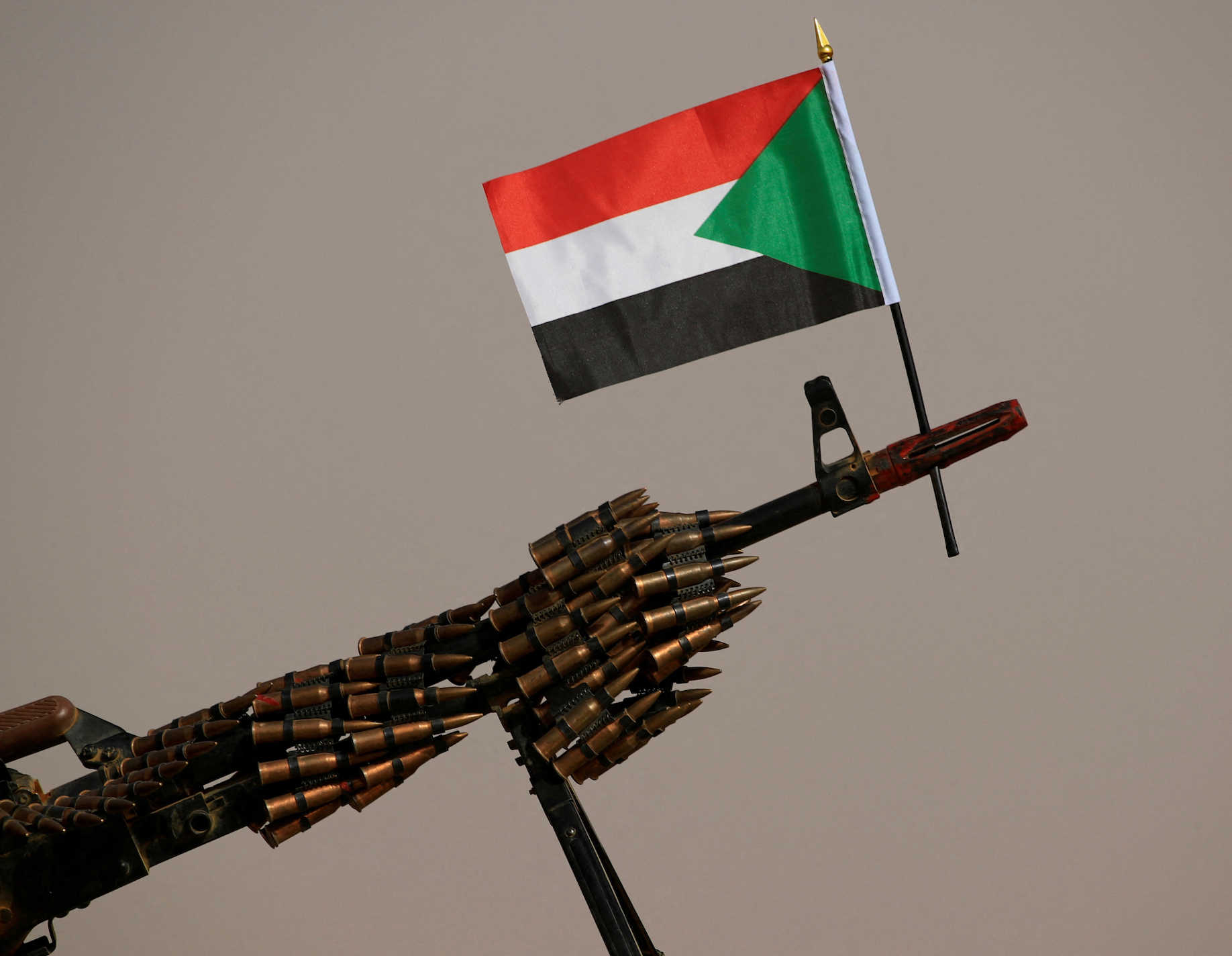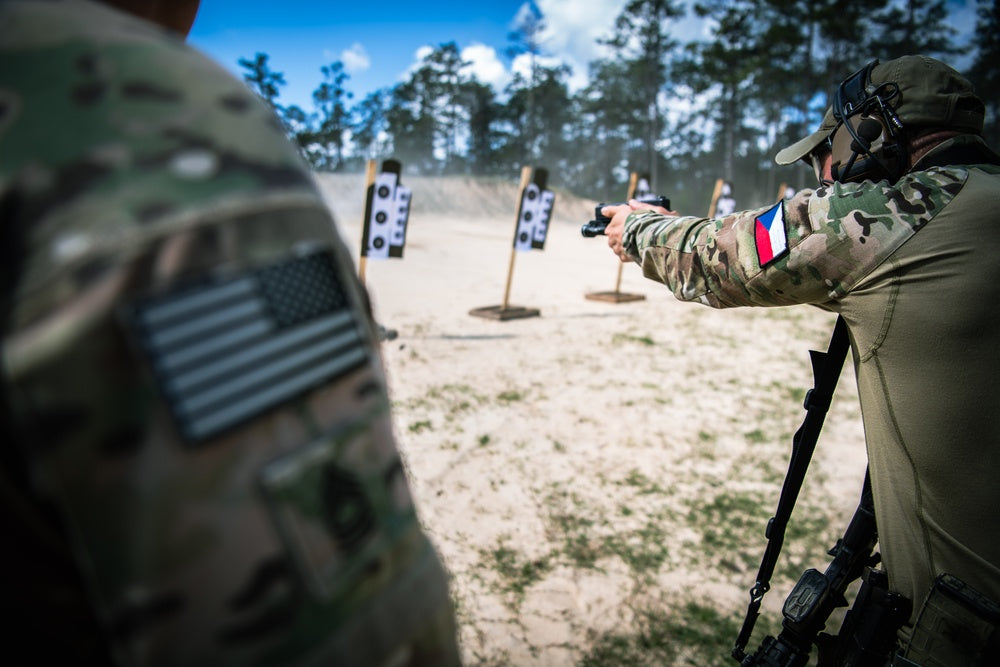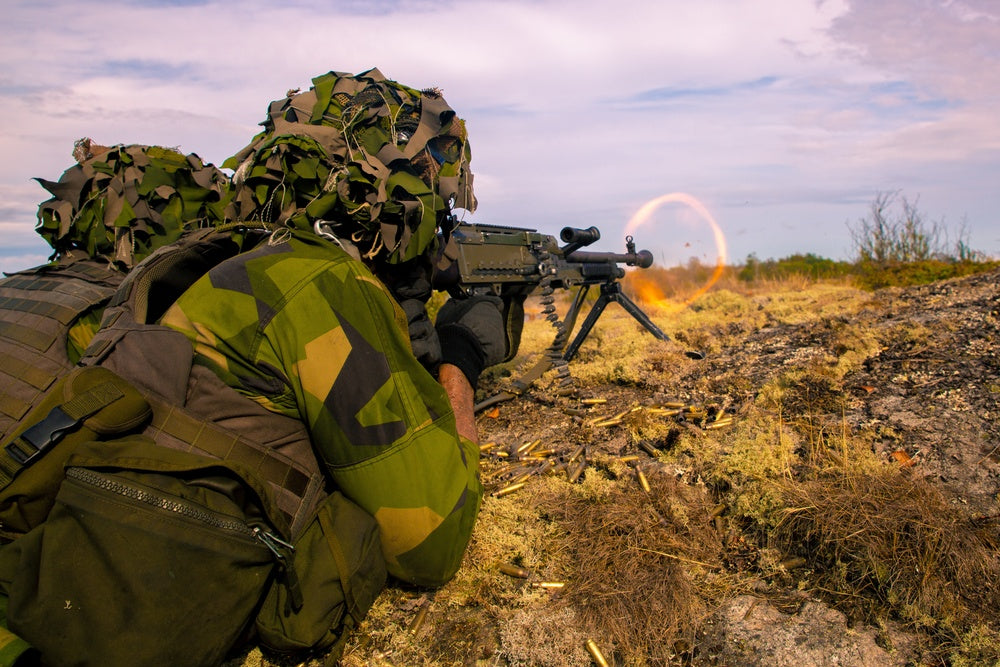
Air strikes and clashes puncture Eid truce pledges in Sudan's capital
PHOTO CAPTION: A Sudanese national flag is attached to a machine gun of Paramilitary Rapid Support Forces (RSF) soldiers as they wait for the arrival of Lieutenant General Mohamed Hamdan Dagalo, deputy head of the military council and head of RSF, before a meeting in Aprag village 60, kilometers away from Khartoum, Sudan, June 22, 2019. REUTERS/Umit Bektas/File Photo
(Reuters) - Air strikes and anti-aircraft fire rattled parts of Sudan's capital Khartoum on Wednesday, residents said, despite both the military factions that have been battling each other since mid-April declaring truces for the Muslim holiday of Eid al-Adha.
War between Sudan's army and the paramilitary Rapid Support Forces (RSF) has caused a major humanitarian crisis and displaced nearly 2.8 million people, of which almost 650,000 have fled to neighbouring countries.
The three cities that make up the wider capital around the confluence of the River Nile - Khartoum, Bahri and Omdurman - have seen more than 10 weeks of heavy clashes and looting, while the conflict has triggered a resurgence of ethnically motivated killings in the western region of Darfur.
Residents and news reports said fighting had intensified in Omdurman on Wednesday afternoon. The Darfur Bar Association, an activist group that monitors the conflict, said the RSF had carried out lethal attacks in the Manwashi area of South Darfur State twice in the past five days.
The United Nations mission in Sudan urged the two sides to maintain the truces they had committed to.
The RSF and allied militias remained accountable for violence, rape and looting in areas it controlled, and for ethnically targeted violence in Darfur, while the army remained accountable for attacks and aerial bombardments in residential areas, the mission said in a statement.
"These parties should be reminded that the world is watching and accountability for crimes committed during wartime will be pursued," the statement said.
The conflict broke out amid disputes over what powers they would retain under an internationally-backed plan for a transition to civilian rule.
Multiple ceasefire deals have failed to stick, including several brokered by Saudi Arabia and the United States at talks in Jeddah that were suspended last week.
(Reporting by Khalid Abdelaziz in Dubai and Nafisa Eltahir in Cairo; Writing by Aidan Lewis; editing by Grant McCool)









